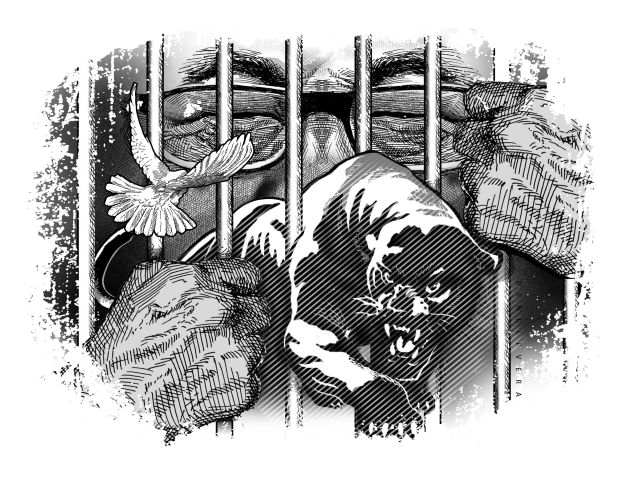
When I retired from the judiciary, I decided to turn away from anything connected with the law and devote my time to writing, an “amusement” that had preoccupied me when I went to law school, and which the latter, and the years of legal practice that came after it, forced me all but to abandon.
And so, having hung up my robe and deposited the gavel in a display cabinet, together with a portrait of me which my staff had commissioned to mark my retirement with, I began to shun anything associated with lawyering and resumed the writing of poems.
Still, having given more than forty years of my life to the pursuit of law, which must have seeped into my subconscious, I find it no surprise that I should twitch whenever a legal matter comes up. I recover, quickly, however, and just shrug it off. I seem like Rilke’s caged panther, when an image enters its pupils and moves to its tensed muscles, thence to its heart and disappears.
But, lately, I did not succeed as well in disposing of the momentary unease, and for this I blame the Holy Spirit.
At Pentecost, fifty days after the Resurrection of Christ the apostles gathered together, with Mary, the mother of Jesus, “in one place,” according to the Acts of the Apostles. The Acts adds that “suddenly there came from the sky a noise like a strong driving wind, and it filled the entire house in which they were.” Then, the Acts continues, “there appeared to them tongues as of fire, which parted and came to rest on each one of them.” And, the Acts further states, “they were all filled with the Holy Spirit and began to speak in different tongues, as the Spirit enabled them to proclaim.”
Lately, I came across an essay, “The Indwelling Spirit,” by John Henry Newman.
Newman writes that God the Son “graciously condescended to reveal the Father to his creatures from without.” (The dictionary defines “condescend” as “to put aside one’s dignity or superiority voluntarily and assume equality with one regarded as inferior”–a meaning that aptly applies to the Incarnation.) On the other hand, Newman writes, God the Holy Spirit condescended to us, God’s creatures, “by inward communication.”
Newman describes the Holy Spirit as “the Presence of God within the creation: a source of life amid the chaos, bringing out into form and order what was at first shapeless and void, and the voice of truth in the hearts of all rational beings, turning them into harmony with the intimations of God’s Law, which were externally made to them.”
Newman adds that the Holy Spirit is the “life-giving” Spirit, being “the soul of universal nature, the strength of man and beast, the guide of faith, the witness against sin, the inward light of patriarchs and prophets, the grace abiding in the Christian soul, and the Lord and Ruler of the Church.”
The Savior, Newman writes, “still is with us, not in mere gifts, but by the substitution of the Spirit for himself.” Hence, the Spirit is the Spirit of Christ because “he comes to us from and instead of Christ.”
Then Newman calls the Spirit “the earnest of our inheritance.” This makes me blink because “earnest” has a special legal meaning–the “payment of a part of the price of goods sold, or the delivery of part of such goods, for the purpose of binding the contract.”
A precursor of the term, the Middle English “ernes,” means “a foretaste of what is to follow.” In this vein, Newman explains “earnest” as “something in advance of what is one day to be given in full.”
All this I take to mean that God has reserved an inheritance for me, and in Baptism gives me the Holy Spirit as an advance of this gift. This advance is likewise a pledge that I will get the full inheritance when the time comes.
What I see when I think of this makes my muscles tense, and straightaway it goes to my heart, there to stay. And I feel a sense of liberation, as though the bars of the world have been removed, and my panther soul is now free to leave its cage.